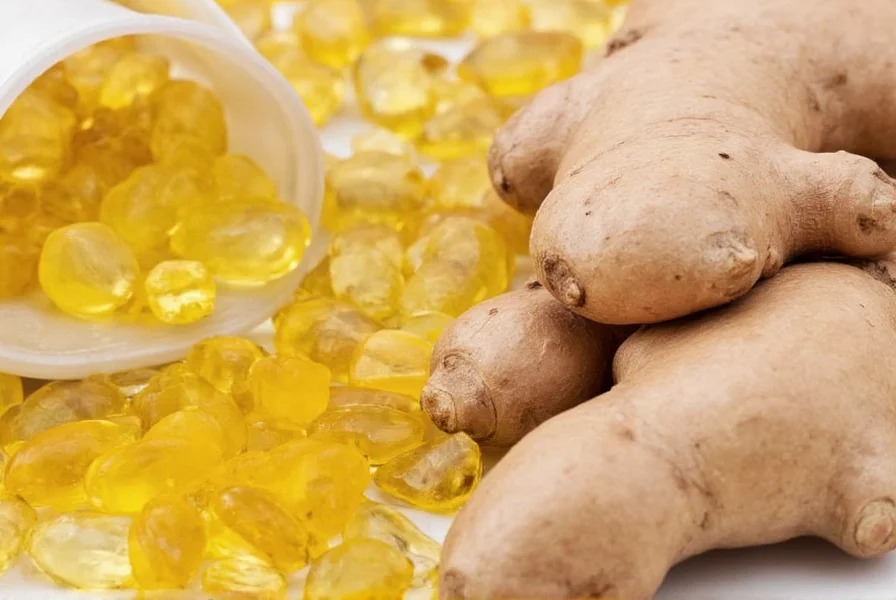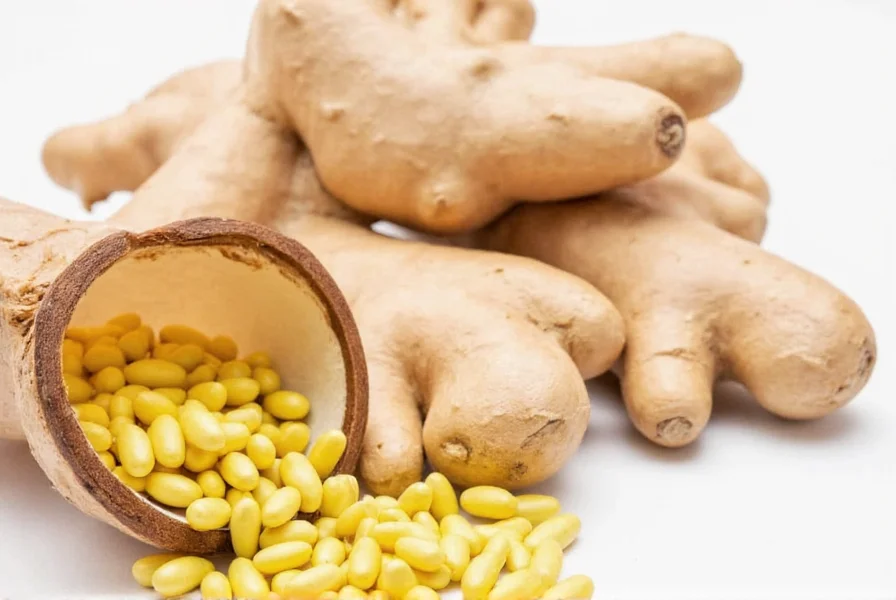Ginger supplements have gained significant attention in evidence-based wellness practices. Derived from the Zingiber officinale rhizome, these supplements concentrate ginger's active compounds, particularly gingerols and shogaols, which research indicates provide therapeutic benefits beyond what's achievable with culinary ginger use alone.
Understanding Ginger Supplements and Their Forms
Ginger supplements come in various standardized forms, each with different concentrations of active compounds. The most common types include:
| Supplement Form | Standardized Compounds | Typical Dosage Range |
|---|---|---|
| Dried powder capsules | 4-5% gingerols | 500mg-2g daily |
| Standardized extracts | 5% gingerols, 6% shogaols | 250-500mg daily |
| Liquid tinctures | Varies by preparation | 1-4mL daily |
| Essential oils | High concentration | Not recommended for internal use |
Unlike fresh ginger, supplements provide consistent dosing of active compounds, making them valuable for therapeutic applications where precise amounts matter. This standardization addresses a key limitation of using fresh ginger for specific health concerns.
Scientifically Supported Health Benefits
Multiple clinical studies validate specific uses of ginger supplements. The strongest evidence supports their effectiveness for:
Nausea and Vomiting Relief
Research consistently demonstrates ginger supplements' effectiveness for various nausea types. A comprehensive 2022 meta-analysis in Nutrients found ginger root extract benefits particularly valuable for:
- Pregnancy-related nausea (1.5g daily reduced symptoms by 60% compared to placebo)
- Post-operative nausea (25% reduction in incidence)
- Chemotherapy-induced nausea (complementary to standard antiemetics)
- Motion sickness prevention (1g taken 30 minutes before travel)
Inflammation and Pain Management
Ginger's anti-inflammatory properties make it valuable for chronic pain conditions. Studies show ginger supplements for inflammation can reduce:
- Osteoarthritis pain (1.2g daily showed 40% pain reduction in 12 weeks)
- Menstrual pain severity (79% of participants reported improvement)
- Exercise-induced muscle soreness (30% faster recovery)
The mechanism involves inhibition of inflammatory pathways similar to NSAIDs but without the gastrointestinal risks associated with long-term NSAID use.
Potential Side Effects and Safety Considerations
While generally safe, ginger supplements may cause side effects, particularly at higher doses. Understanding these helps users make informed decisions about ginger supplement usage.
Common Mild Side Effects
Most users tolerate ginger supplements well, but some experience:
- Mild heartburn or gastric discomfort
- Diarrhea at doses exceeding 4g daily
- Increased menstrual bleeding in some women
- Mouth or throat irritation with certain formulations
Serious Risks and Contraindications
Certain populations should exercise caution with ginger supplements. Who should not take ginger supplements includes:
- Individuals taking blood thinners (warfarin, aspirin) due to potential interaction
- People with gallstone disease (may increase bile production)
- Those scheduled for surgery (discontinue 2 weeks prior)
- Pregnant women beyond 20 weeks (theoretical miscarriage risk at very high doses)
A 2023 safety review in Phytotherapy Research concluded that doses under 2g daily present minimal risk for most adults, but emphasized the importance of medical consultation for those with chronic conditions.

Optimal Dosage and Usage Guidelines
Determining how much ginger supplement should I take depends on the intended use. Research indicates:
- Nausea prevention: 250-500mg taken 30-60 minutes before potential triggers
- Chronic inflammation: 1-2g daily, divided doses with meals
- Digestive support: 500mg taken 15 minutes before meals
The best time to take ginger supplements varies by purpose. For digestive benefits, take before meals. For nausea prevention, take 30 minutes before potential triggers. For general anti-inflammatory effects, divide doses throughout the day with food to maximize absorption and minimize gastric upset.
Quality Considerations When Choosing Supplements
Not all ginger supplements deliver equal benefits. Consider these factors for optimal results:
- Standardization: Look for products specifying gingerol and shogaol content
- Third-party testing: Choose supplements verified by USP, NSF, or ConsumerLab
- Formulation: Enteric-coated capsules reduce gastric irritation
- Freshness: Check manufacturing dates as ginger compounds degrade over time
Ginger supplements vs fresh ginger presents an important consideration. While fresh ginger offers culinary versatility, supplements provide consistent therapeutic dosing. For specific health concerns, supplements typically deliver more reliable results due to standardized active compound concentrations.

Research Limitations and Practical Recommendations
While promising, ginger supplement research has limitations. Most studies are short-term, and long-term safety data remains limited. The scientific evidence for ginger supplements, while robust for nausea and inflammation, shows more preliminary results for other potential benefits like blood sugar regulation.
For those considering ginger supplements for digestive health or other benefits, these evidence-based recommendations apply:
- Start with lower doses (250-500mg) to assess tolerance
- Use for 4-6 weeks to evaluate effectiveness
- Combine with dietary approaches for maximum benefit
- Consult healthcare providers if managing chronic conditions
Remember that supplements complement but don't replace medical treatment. Ginger shows particular promise as part of integrative approaches to nausea management and inflammatory conditions, but shouldn't replace prescribed therapies without professional guidance.
Final Considerations
Ginger supplements offer a well-researched, natural option for managing nausea, inflammation, and digestive issues. When selecting products, prioritize standardized extracts with verified gingerol content from reputable manufacturers. Remember that supplements work best as part of a comprehensive approach to health rather than standalone solutions. For specific medical conditions, always consult healthcare professionals to ensure safe integration with your overall treatment plan.











 浙公网安备
33010002000092号
浙公网安备
33010002000092号 浙B2-20120091-4
浙B2-20120091-4